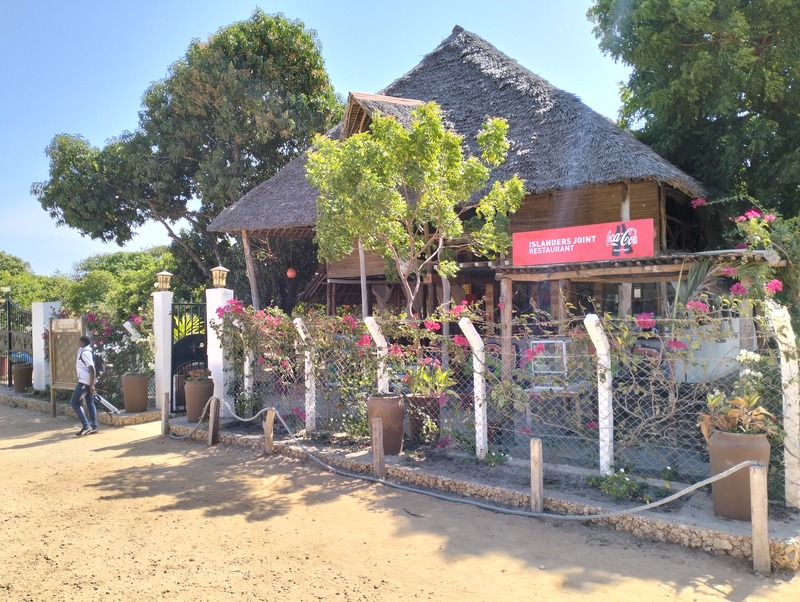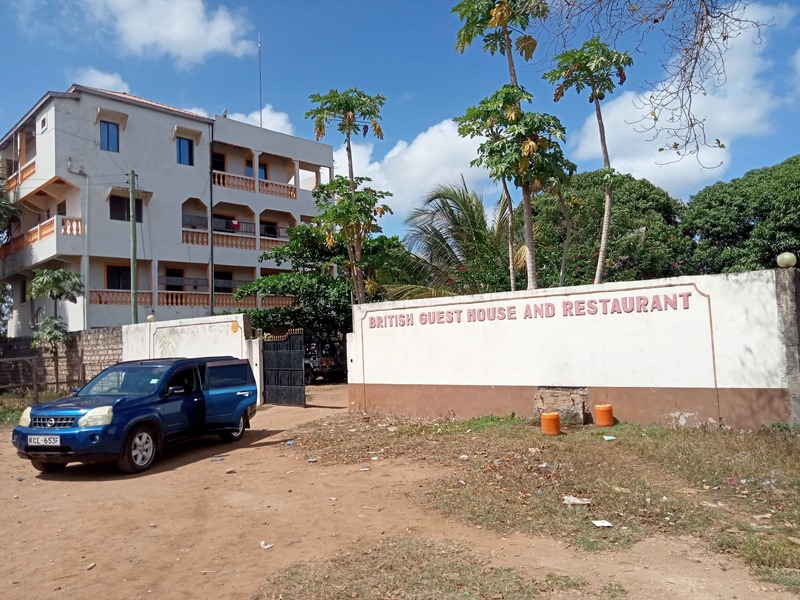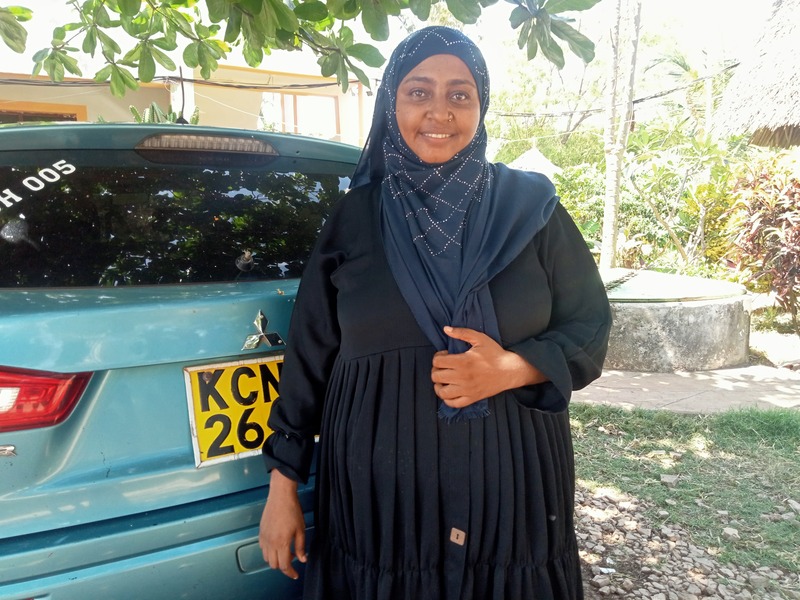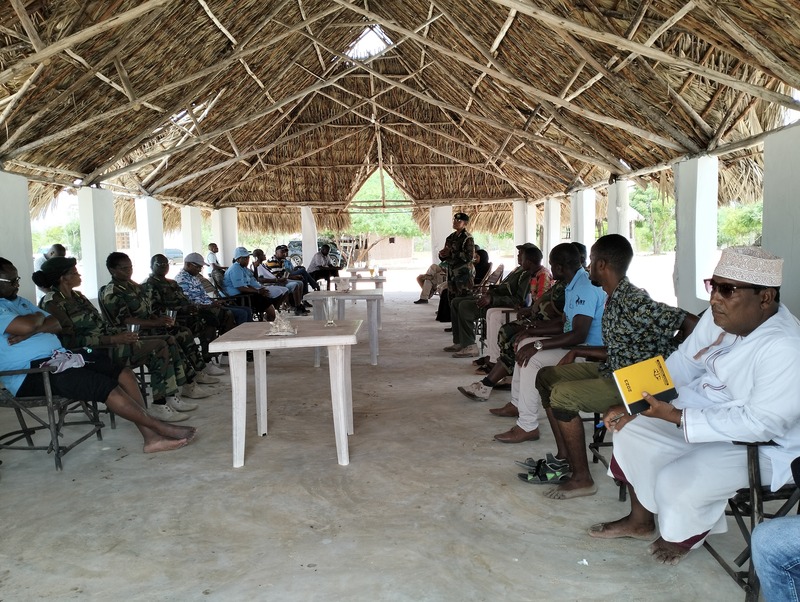Booming Business: How Lamu Port and Lamu-Witu Road are transforming key towns

Hindi, Mokowe, Magogoni, Mpeketoni, Kibaoni, and Witu were relatively low-profile towns back then, however, the status of these towns has improved significantly in terms of development.
The operationalisation of the Sh310 billion Lamu Port and the Sh10.8 billion Lamu-Witu-Garsen Road about four years ago has proven to be a blessing for many towns bordering these two key projects.
Hindi, Mokowe, Magogoni, Mpeketoni, Kibaoni, and Witu were relatively low-profile towns back then.
More To Read
- Shimoni port welcomes first cruise ship, boosting Kwale County’s tourism revival
- Kiunga residents in Lamu raise concerns over weapon testing near homes
- Mombasa Port ranked 375th worldwide in latest container port index
- Lamu Port welcomes first conventional cargo vessel as Mombasa hosts Indian Coast Guard Ship
- Ship agents oppose KEPHIS pest inspection charges on shipping lines
- Audit exposes confusion over control of Sh5 billion Lamu Port
Today, however, the status of these six towns has improved significantly in terms of development, thanks to the operationalisation of the new Lamu Port and the main Lamu route about three years ago.
Hindi, Mokowe, Magogoni, Mpeketoni, Kibaoni, and Witu have grown into key commercial hubs in Lamu, with investors flocking to these areas daily to engage in various ventures.
In these towns, you will find businesspeople venturing into real estate, the hotel and hospitality industries, and the transport sector, among others.
These types of businesses are thriving, thanks to the significant number of customers now available.
The Eastleigh Voice noted the rapid growth of hotel resorts, guesthouses, and similar amenities in the respective towns shortly after the Lamu Port and Lamu-Witu-Garsen road were officially opened by former President Uhuru Kenyatta on May 20, 2021.
 The Mpeketoni British Guest House in Lamu West. (Photo: Farhiya Hussein)
The Mpeketoni British Guest House in Lamu West. (Photo: Farhiya Hussein)
Initially, much of the hotel industry was concentrated on Lamu Island and the rest of the archipelago, where both domestic and international tourists would visit to enjoy the white sandy beaches of Shella, Ras Kitau, Manda Bay, Kipungani, Matondoni, Kiwayu, as well as snorkelling in the Indian Ocean.
Recently, however, there has been a shift brought about by the operationalisation of these two multibillion-shilling projects, which have opened up the entire Lamu region for investment.
Saamiya Mohamed, an investor in the real estate and hotel industries, stated that the significant developments in Lamu encouraged her to establish luxurious hotel resorts, cottages, restaurants, and similar facilities in Mpeketoni to tap into the growing tourism sector and increased clientele brought about by the improved roads and the completion of the Lamu Port project.
Saamiya revealed that she had invested over Sh25 million in her businesses due to the confidence inspired by the Lamu Port and the main Lamu road.
Saamiya owns the renowned British Guest House and Restaurant located in Mpeketoni Town. She also owns the British Luxury Cottage on the outskirts of Mpeketoni Town, which features a state-of-the-art swimming pool—the only premises offering swimming services in Mpeketoni, Hindi, Mokowe, and the surrounding mainland areas.
This has led to an influx of guests and tourists to the establishment, especially during holidays.
She has also initiated other projects to cater to tourists visiting Lamu, including travel and accommodation services while they explore the various Lamu conservancies and observe wildlife.
This is the first time that investors have sought to capitalise on wildlife tourism in Lamu County, diversifying the sector, which is the economic backbone of the region.
“The Lamu Port encouraged me to invest further in the hotel and hospitality industry, particularly on the mainland rather than concentrating solely on Lamu Island. I own the British Guest House and Restaurant, which features over 15 rooms and a modern conference hall. This facility is valued at over Sh18 million. I also own the British Luxury Cottage with a modern swimming pool, valued at over Sh10 million. My goal is to continue expanding my investments, and so far, things are progressing well,” she said.
 Saamiya Mohamed alias 'British', an investor in Lamu. She is among those who benefited from the improved infrastructure and security in Lamu. (Photo: Farhiya Hussein)
Saamiya Mohamed alias 'British', an investor in Lamu. She is among those who benefited from the improved infrastructure and security in Lamu. (Photo: Farhiya Hussein)
She also noted that tourists have increasingly been drawn to the mainland to view wildlife, rather than sticking to the usual white sandy beaches and snorkelling on the archipelago.
“We are rich in wildlife, and I intend to take full advantage of this. That’s why I’ve heavily invested in tour guide services, travel, and accommodation,” she added.
Mohamed Kassim Shahare, another successful investor in Mokowe, also on the mainland, revealed that he has invested in real estate, security, and the hotel industries.Mohamed is the proprietor of the Sh6 million Mokowe Islanders Point Restaurant, Landsworthy Real Estate Company, and Kingsforth Security Company.
He pointed out that the relocation of both the county headquarters and national government offices from Lamu Old Town to Mokowe has further enhanced the profile of mainland towns.
For decades, county and national government offices were situated in the heart of Old Town on Lamu Island. The gradual transfer of offices to Mokowe began after devolution in 2013. The county headquarters were moved in July 2017, following the completion of the Sh284 million office block that now houses the governor, the executive, and key departments.
The County Commissioner’s offices were also relocated to Mokowe in early 2020, following the completion of the Sh214 million administration block. The Sh214 million Lamu County Assembly buildings are also located in Mokowe.
Mohamed noted that with the presence of these top public offices, Mokowe has become the leading commercial town in the area.
“Most of my restaurant's revenue comes from special food orders, particularly when the county commissioner, governor, or Lamu MCAs hold meetings. Other public servants also dine at my restaurant daily, which has greatly boosted our business. I serve over 200 clients each day,” said Shahare.
 -The Kitangani Beach Restaurant and Conference Hall in Mokowe, Lamu West.(Farhiya Hussein)
-The Kitangani Beach Restaurant and Conference Hall in Mokowe, Lamu West.(Farhiya Hussein)
Fredrick Mwaganje, Manager of Kitangani Beach and Restaurant in Mokowe, stated that in addition to food and recreational services, they also offer conference facilities to companies and government agencies operating in or visiting Lamu.
“We’ve constructed a modern and spacious conference hall, which is frequently booked by companies for meetings, and they pay well,” said Mwaganje.
The investors also expressed their gratitude to the national government for enhancing security in Lamu, particularly in mainland areas that were previously vulnerable to attacks by Al-Shabaab militants.
Loice Kanze highlighted how improved security and the critical developments in Lamu have helped transform the once-sleepy towns of Mokowe, Hindi, Magogoni, Mpeketoni, Kibaoni, and Witu into modern urban centres.
“Investors in Lamu Old Town have been seen moving from the trade and tourism hub of the island to the mainland towns of Mokowe, Hindi, Magogoni, Mpeketoni, Kibaoni, and Witu,” said Kanze.
Top Stories Today














































